Ethiopians celebrate progress on 6,000 MW dam construction
The construction of the GERD which started in 2010 on Ethiopia’s Blue Nile also referred to as Abay and is currently getting into the final bend. The filling of the dam with water which is expected to take four to seven years has started.
KAMPALA - Ethiopians on Sunday gathered in Addis Ababa and their embassies in different countries including Uganda to celebrate the progress on the construction of the Grand Renaissance Dam (GERD). The 6,450 MW dam once completed will become Africa's largest Hydro-Electric Power dam and also the eighth largest dam globally.
The construction of the GERD which started in 2010 on Ethiopia's Blue Nile also referred to as Abay and is currently getting into the final bend. The filling of the dam with water which is expected to take four to seven years has started.
By July 21, the first year of filling had contributed 4.9 billion cubic metric tones of water out of the total 74 billion cubic metrics needed.
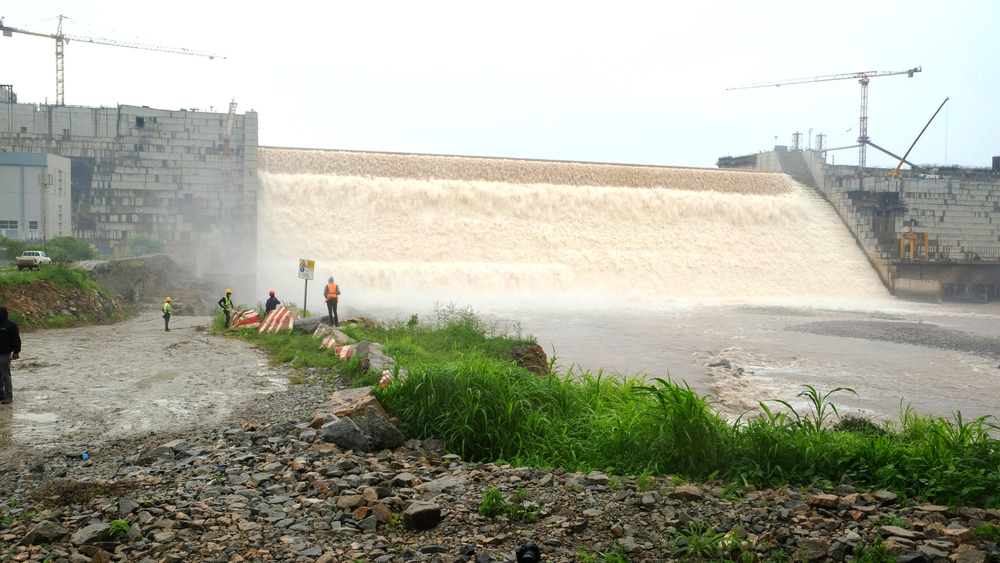
"This filling happened in a few days due to better hydrology in the basin and it enables the country to test two of the turbines in order to generate electricity in the coming year," according to a statement from the Ethiopian Embassy in Kampala. "The country planned to fill the reservoir from four to seven years based on the hydrology of the basin in order not to cause any significant harm to the downstream countries."
In a two page statement from the Ethiopian Embassy, Ethiopians and Ethiopian origins at home and abroad are celebrating the completion of the first year filling of the reservoir with the motto of "One Voice for our Dam" across the world. This took place on Sunday (August 2, 2020) at 4:00 P.M on the same day and time.
Kampala celebration
At Kololo where about 100 Ethiopians living in Kampala stood in honour of the Ethiopian national anthem and also waved the Ethiopian flag. This was voicing out Ethiopia's right to utilize the Nile equitably, reasonably and with the principle of international laws.
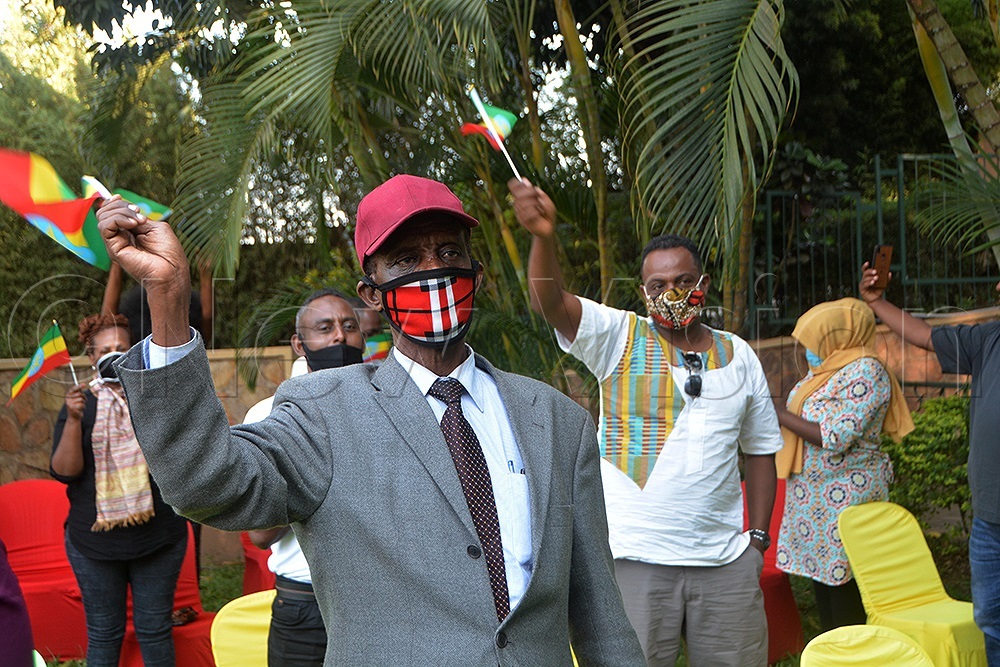
The celebrants also watched documentaries about the GERD pointing out that the dam will increase access to electricity and this will accelerate industrialization and also reduce reliance on firewood for cooking.
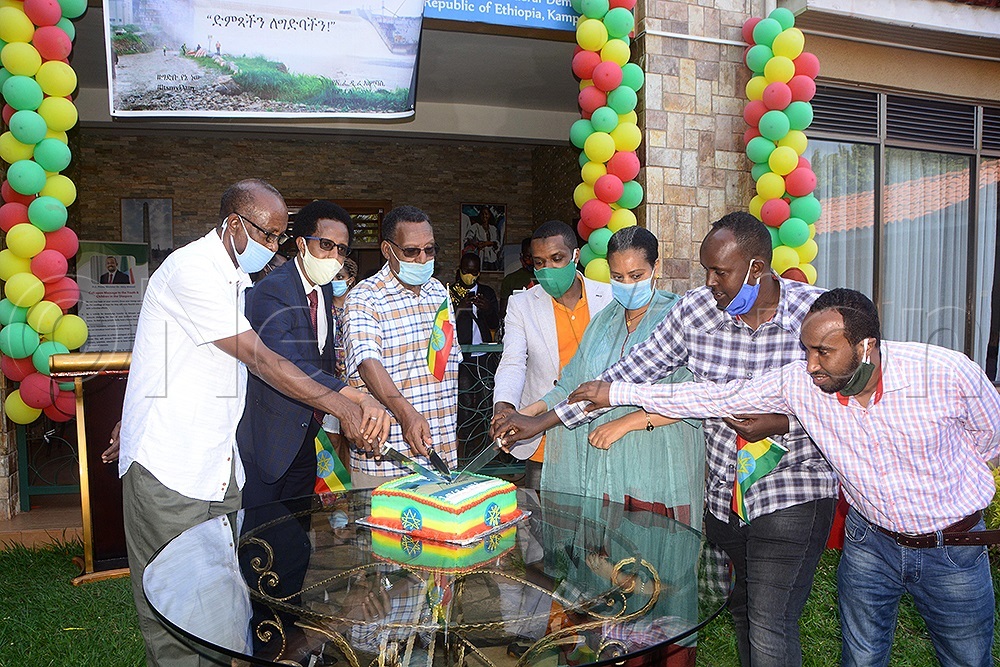
The Ethiopian Government is also mobilizing the community to plant trees in the catchment of Abay to reduce silting of the river, according to the documentary.
"We have completed 74% of the dam," said Alemtsehay Meseret, the Ambassador of Ethiopia to Uganda, adding that their effort to build the GERD is exemplary because they did not rely on grants or loans to build the dam. "It is a dream come true and a lesson that countries can mobilize their own resources to fund large-scale initiatives including dams."
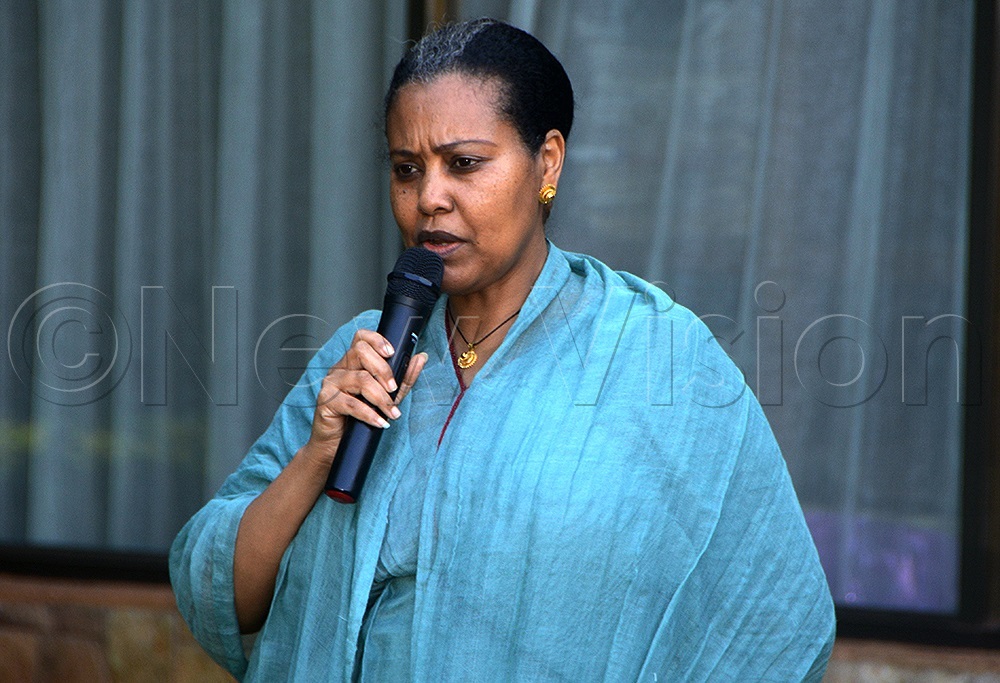
Ethiopia considers the Dam as a source of cooperation and integration in East Africa as well as in the downstream country- Egypt. In addition to the electricity, the Dam will have benefits to the downstream countries (Egypt and Sudan) in that it will regulate water flow that will enhance water management for irrigation, help to manage sediments thereby reducing the cost of dredging irrigation canals, reduces flooding, strengthens socio-economic integration and increases energy in dams in Sudan.
Shared river, benefits
The Nile belongs to all the Nile Basin countries; Ethiopia, which contributes 86% of the river, expresses that it has every right to harness its natural resources in proper observance of recognized international transboundary water principles.
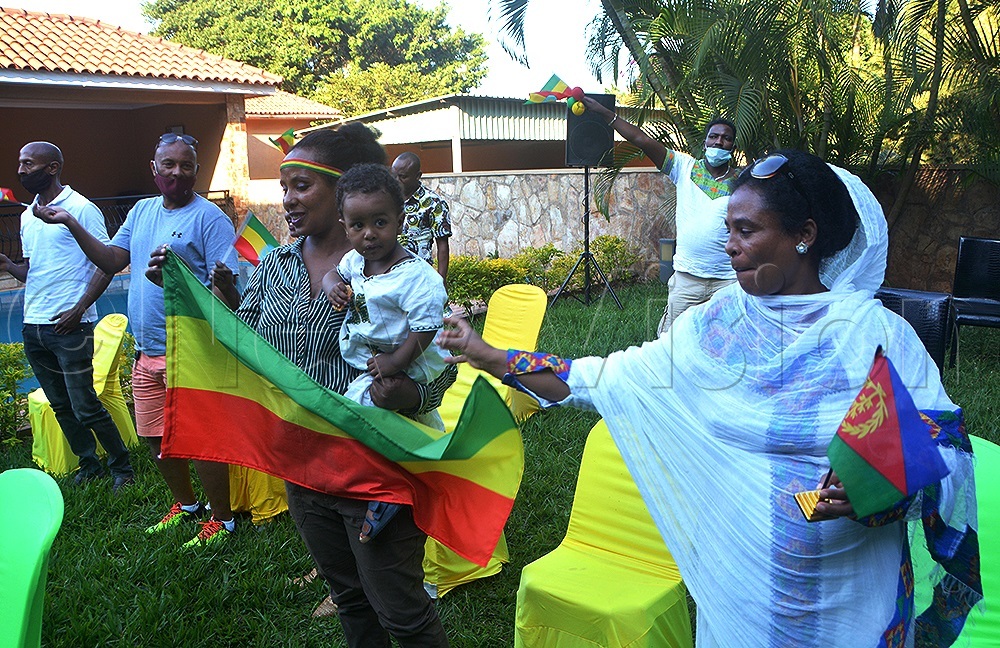
An equitable water sharing and reasonable utilization could be maintained in the Nile Basin through the negotiated outcome of the Nile Basin Initiative -Cooperative Framework Agreement (CFA) among Nile riparian countries. The agreement stipulated the need to establish a Nile Basin River Commission to serve as an institutional framework for cooperation among riparian countries and for the use of the Nile river basin and its water.
The establishment of the commission needs six riparian countries to ratify the CFA. While Ethiopia, Uganda, Tanzania and Rwanda ratified the CFA; Kenya and Burundi signed the agreement.